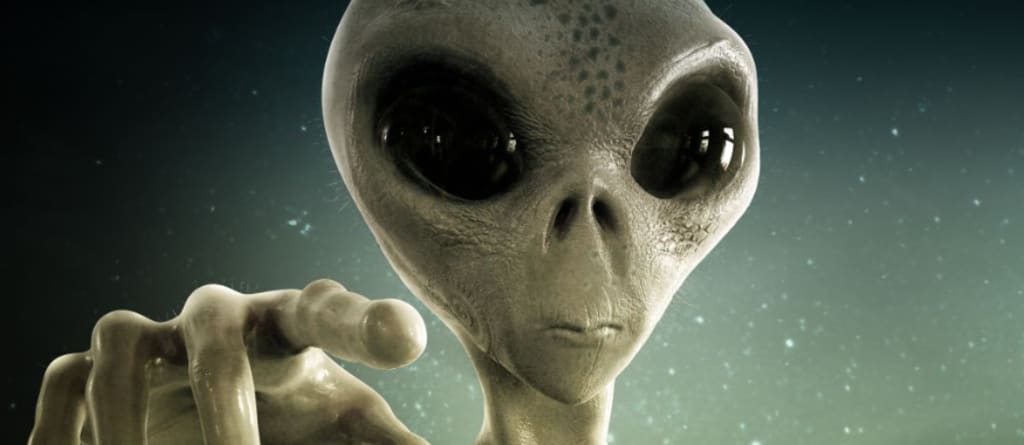What If the Next Pandemic Came From Space?
Why is NASA so worried about space microbes?

Deadly solar flares. Planet destroying Asteroid strikes or a hostile Alien takeover. These might be what comes to mind when you think of the most dangerous threats to Earth from outer space, but the biggest threat could be microscopically small. Why is NASA so worried about space microbes? How much damage could an extraterrestrial microorganism do here on Earth? And if we aren't careful how would we wipe out life on other planets?
This is what if and here's what would happen if the next pandemic came from space. There are somewhere between 100 and 200 Billion galaxies in the observable universe. While we haven't discovered life on another planet just yet, there is a staggering number of Worlds where it could exist if the conditions were just right and that's why NASA and other Space Agencies take the potential contamination between our world and other planets very seriously.
I mean after all the last thing we want to do is, Discover Life Among the Stars. Only to find that we put it there, scientists call this forward contamination terrestrial microscopic organisms from our world could arrive on other planets, moons or Asteroids by catching a ride on equipment that someone didn't clean thoroughly.
If it's a mission to Mars or Jupiter's moon, Europa where conditions for life are theoretically possible contamination protocols get even stricter but another form of contamination is possible, backward contamination we could unknowingly bring back extraterrestrial microbes from space or these life forms could spread across the universe. Naturally hitching rides on meteoroids comets or even space dust.
This Theory known as Panspermia might even explain how life traveled the universe and arrived on Earth in the first place but where life can go, it can also destroy. While we could face deadly exposure in the vast expanse of space, there's another kind of dangerous exposure out there. Online, yeah the other day I was Googling my own name because that's what I do and I came across some pictures of myself.
Some stuff from what if and then a bunch of information about myself and my family that probably shouldn't be out, there you know it's unnerving to see your private life.
When Elon Musk sent his Tesla into space, it's likely he wasn't taking the best protection measures against interplanetary contamination and as more and more commercial space launches happen that could become the norm. The reality is that it would be nearly impossible not to contaminate space.
It's already too late take for example a privately launched Israeli Lunar lander that crashed on the moon in 2019, it was carrying thousands of microscopic organisms called Tardigrades. They are known to be able to withstand, extreme conditions like freezing temperatures and high radiation. They could be up there on the moon plotting their Revenge right now. Some microorganisms can grow and evolve in microgravity or in conditions similar.
To the Martian permafrost that means we need to take every precaution to avoid forward contamination and before you ask me what any of this has to do with destroying life on Earth? well just wait things are about to get dangerous.
But first, how do we avoid this forward contamination? well we should start with rigorous chemical cleaning and heat sterilization to kill any life on the outside of our spaceships. Just make sure you step far away from this process and as we envision human crude missions to Mars, we should set up strict policies about where we can land and explore long.
Before we go there, we should establish exploration zones where we could contaminate in a controlled manner then we'd apply stricter precautionary measures before we explored other parts of the red planet but it's not forward contamination that should scare you.
In these outer space missions, we could accidentally pick up extraterrestrial life and bring it back to Earth. These microbes entering our biosphere, could pose existential threats to all kinds of organisms ourselves included finding Life on Mars either fossilized or Alive seems pretty slim but it's possible that life forms could survive in the water-rich spots on the planet.
These Martian organisms may have the same biological origin as life on Earth. Now that sounds cool but that's what would make them dangerous because it's more likely that these extraterrestrial microbes would find Earth to be a hospitable new home.
If this was the case, there's a chance that these invasive space microbes might slowly take over our Blue Marble. They could force many species of plants and animals into Extinction humans too and that's because they could be pathogens. Those are organisms like parasites fungi or viruses and they need a host to do their thing a host like you and because these parasites are out of this world, they could be resistant to your immune system's responses.
They'd quietly replicate and spread inside your body until they were ready to come out. One day you'd cough up a yellow mucus maybe an oxygen-loving mucus that would start growing and spreading all around you.
This Alien monstrosity could grow as fast as one meter in one day soon it might develop a fruiting body with deadly spores inside of it. Eventually, this thing would burst open releasing thousands of spores. Now this would be one thing, if it happened in an isolated Lab but if this monstrosity exploded outside in the open. Well, there's nothing we could do to stop Alien spores from spreading and infecting everything in their way. That's game over for Earth.
Better to eradicate these microbes quickly before they could wipe us out and that's why we need strict rules and protocols for returning spacecraft. Their crew and any potential biological samples, they may carry.
In past Apollo missions, Astronauts were quarantined for 30 days after returning to Earth and all the Lunar samples they brought were subjected to extensive life detection and biohazard protocols. If you were transporting samples from Mars, well, you should assume they're dangerous until it's clear they're not. That means proper containment and that containment should stay intact throughout your spacecraft's travel re-entry into Earth's atmosphere and delivery to quarantine facilities. You should only distribute the samples.
Once Scientists have proven that they don't contain any biological life if there's even a slight uncertainty that the samples weren't properly contained, well, they and the entire spacecraft must be sterilized while still in space and if there's still doubt, well, sorry your spaceship could never return to Earth. Yep. You should turn around and get ready to settle down on Mars permanently but that's a story for another what if
Like, Comment, Share and Subscribe for more Stories.
Thank you for Reading.






Comments
There are no comments for this story
Be the first to respond and start the conversation.